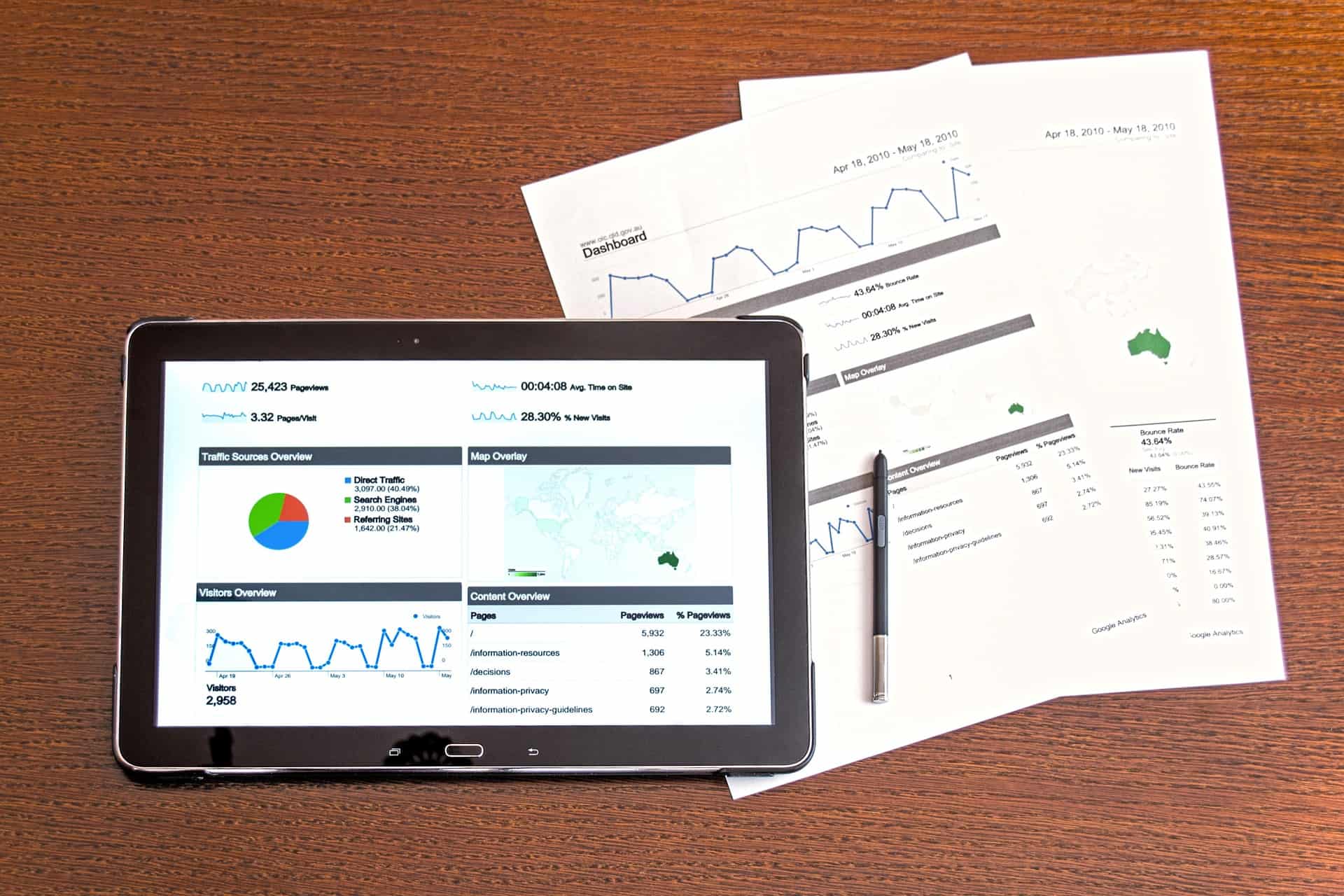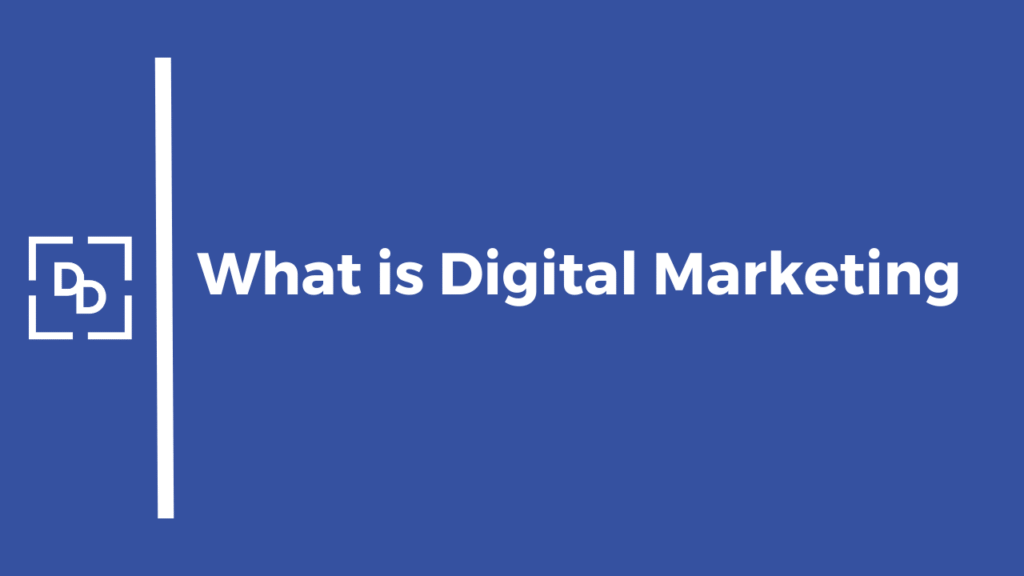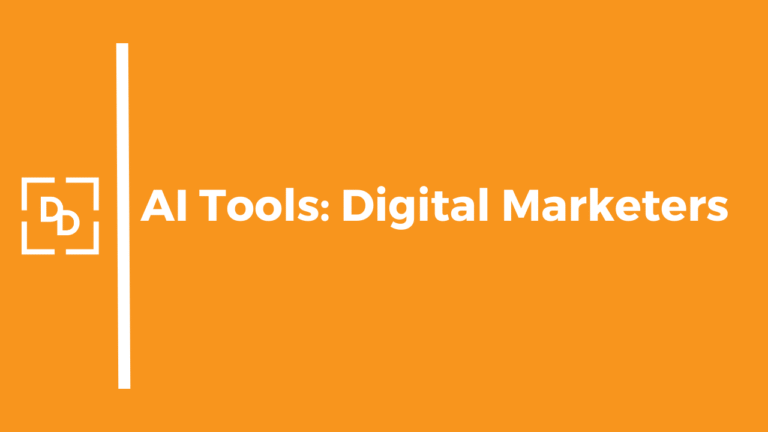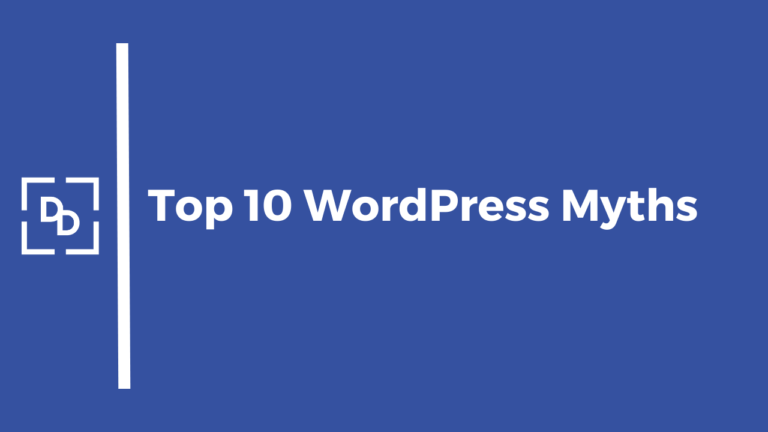Introduction
The term Digital Marketing refers to the use of Digital platforms like Social Media, Mobile Apps etc to market products & services. It involves different Marketing activities like Email Marketing, Social Media Marketing, Search Engine Optimization (SEO), Pay Per Click (PPC), Content Writing & more
Digital Marketing became popular with the advent of the internet in 1990, coupled with the proliferation of mobile devices. As more and more people started using smartphones & other digital devices, businesses realized the importance & potential to reach out and engage with their audience.
The rise of Social Media giants like Facebook, Instagram, Google, Twitter, and Snapchat also played a significant role in the popularity of Digital Marketing. These platforms have provided businesses with new & innovative ideas to reach and engage with users online and convert them into customers. E-commerce giants like Amazon also played a key role in proliferating and popularizing the “online purchase” culture.
In this blog we will dive into Digital Marketing & how you can use it to promote your brand online. We will also break down the different types of Digital Marketing & understand each one in detail.
Sign up for our Courses on different Digital Marketing modules and get lifetime access to our LMS.
Significance of Digital Marketing
Digital Marketing is important for all types and sizes of businesses, whether big or small. It is equally important for students and the younger generation as they’ll witness more things online than previous generations.
It is important to mention the pre-covid, during covid & post-covid world’s/scenarios here
- Pre-Covid: Before the pandemic started, Digital Marketing was growing as brands had slowly started realizing that “Digital & Online” were the way-forward. Start-ups, in particular, were early to adopt Digital channels as SEO, Google My Business & Social Media were free channels to use
- During-Covid: Covid brought about a drastic change as it forced brands to completely move online. With everyone stuck at home, more and more people started working from home and taking up online courses. There was complete transformation towards Digital overnight.
- Post Covid: Once the pandemic eased and restrictions relaxed, all brands who chose to market digitally continued doing so. Traditional advertising budgets for channels like TVC, Radio, Billboards, etc were cut/slashed and moved to Digital. Brands also started hiring more Digital Marketing professionals in-house as they saw the ROI was both higher and measureable Vs. traditional
Digital Marketing is important for a number of reasons like:
- It allows businesses to reach & engage with consumers online
- Its a 2 way communication
- Businesses can target specific demographics & interest groups
- Show personalized messages to different target groups
- Track & measure effectiveness of their campaigns
- Increased ROI & conversion rates
- Make data-driven decisions
- It is cost effective
Types of Digital Marketing
Your website is the centerpiece of all Digital Marketing activities. A website should represent a brand, product or service in a clear, concise and memorable way.
There are different types of Digital Marketing:
- Search Engine Optimization: SEO refers to the practice of optimizing a website to rank higher in search engine results pages (SERPs) for specific keywords or phrases.
- Content Marketing: This involves creating and sharing valuable, relevant, and consistent content to attract and retain a clearly defined audience.
- Social Media Marketing: This refers to the use of social media platforms, such as Facebook, Instagram, and Twitter, to promote a product or service.
- Email Marketing: This involves using email to send promotional messages to potential and current customers.
- Pay Per Click: This includes various forms of advertising that appear on the internet, such as display ads, search ads or native ads and is calculated when a user clicks on an ad
- Affiliate Marketing: This involves promoting other companies’ products or services in exchange for a commission on each sale.
- Video Marketing: This involves using video content, such as YouTube videos or video ads, to promote a product or service.
- Mobile Marketing: This involves using mobile apps or mobile-optimized websites to reach customers through their mobile devices.
- Marketing Automation: This refers to the use of software and technology to automate repetitive tasks and workflows in marketing, such as email campaigns and social media posting
- Inbound Marketing: This is a marketing strategy that focuses on attracting, engaging, and delighting customers through relevant and valuable content. The goal of Inbound
- Conversion Rate Optimization (CRO): refers to the process of systematically enhancing a website or digital platform to increase the percentage of visitors who complete a desired action, such as making a purchase or filling out a contact form

1. Search Engine Marketing: Driving organic visibility & a foundational element of Digital Marketing, SEO encompasses a range of techniques and best practices aimed at improving a website’s visibility in search engine results pages (SERPs).
There are 3 primary techniques of SEO:
- On-Page SEO: This technique optimizes individual web pages to boost search rankings and attract relevant traffic. This includes refining meta titles, descriptions, header tags, and keyword placement; tagging images with descriptive alt text; and creating logical internal links to improve user experience and visibility. It also involves enhancing page load speed, mobile responsiveness, and accessibility. Focusing on these factors builds a strong digital foundation, increases the chances of higher SERP rankings, and is essential for successful online marketing.
- Technical SEO: is the process of optimizing a website’s infrastructure to enhance its visibility and performance in search engine rankings. This involves ensuring that search engines can efficiently crawl, index, and render all important pages of a website without encountering barriers such as broken links or slow load times. Key elements of technical SEO include improving site speed, implementing structured data, utilizing XML sitemaps, and maintaining a clean URL structure. Additionally, it focuses on mobile-friendliness and security protocols like HTTPS to provide users with a safe and seamless browsing experience.
- Off-Page SEO: is the process of optimizing a website’s external factors to improve its ranking and authority in search engine results. This involves activities that occur outside the boundaries of the actual website, such as acquiring high-quality backlinks from reputable sources, engaging in social media marketing, and building relationships with influencers within relevant industries. By fostering a strong digital presence across various platforms and earning endorsements from authoritative sites, Off-Page SEO signals to search engines that a website is trustworthy and valuable
Read all our blogs on SEO & optimize your website for search engine
2. Content Marketing: Engaging & Educating Audiences with Digital storytelling. Content Marketing involves creating & distributing content to build brand awareness, increase traffic to the website, generate leads & convert customers.
The content you create can be as below:
- Blog Posts: Writing a blog using short tail & long tail keywords is a great way to bring organic traffic to your website & engage your customers
- Ebooks & White Papers: Publishing long-form content on your website establishes your expertise in your niche & builds trust among your audience. You can offer the Ebooks for free as download in exchange for readers contact details, helping you generate leads.
- Videos: offer a dynamic and visually appealing medium through which complex concepts or services can be more easily understood by potential customers
- Infographics: are another form of visual content that serve as an engaging and effective means to present complex information in a concise and visually appealing manner. By combining graphics, data, and minimal text, infographics are able to simplify intricate topics and make them accessible to a wide audience.
- Podcasts: have emerged as a valuable medium for organizations and individuals seeking to deepen their connection with audiences. By offering engaging and easily accessible audible content, podcasts allow creators to communicate complex ideas, share personal stories, and provide expert insights in a format that fits seamlessly into listeners’ daily routines.
- Webinars: are a powerful tool for audience engagement in the digital age. Using real-time audio, video, and interactive features, they replicate traditional seminars while removing geographical barriers. Participants can ask questions, join discussions, and access resources instantly for a dynamic experience.
Learn how to write plagarism free content using tools like Rytr & Scalenut
3. Social Media Marketing: This refers to the use of social media platforms, such as Facebook, Instagram, and Twitter, to promote a product or service, in order to increase brand awareness, drive traffic to your website, or shop, & capture leads.
You can do this by creating & publishing posts on:
- X (Formerly known as Twitter)
- YouTube
Your posts can include anything from insightful blog articles to videos showcasing your product in action. Choose channels where your audience is most active; this often depends on their demographics, such as age, location, and interests.
Consistency in posting schedules on social media and the use of visually appealing content can help foster a loyal community around your brand. Additionally, leveraging analytics tools allows you to monitor performance metrics, understand audience preferences, and refine your strategies accordingly.
Paid advertising on these platforms can further expand your reach by targeting specific demographics with tailored messages, ensuring that your marketing efforts are both efficient and effective.
4. Email Marketing: This is one of the most popular Digital Marketing strategy and you must experience Email Marketing in some form – infact you probably have some emails sitting in your promotions tab or inbox.
Email Marketing offers businesses a direct channel to communicate with their target audience. By leveraging well-crafted email campaigns, organizations can foster greater engagement through personalized content and timely updates, ensuring that recipients remain informed and interested in their offerings. This approach not only promotes products effectively but also nurtures relationships with customers by delivering value-driven information tailored to their preferences.
Broadly speaking, there are 4 different types of Email Marketing:
- Newsletter Campaigns: These are regularly scheduled emails sent to subscribers to provide updates, share company news, highlight blog posts or industry insights, and maintain ongoing engagement with the audience. Newsletters serve as a valuable tool for building long-term relationships by keeping recipients informed about developments within the organization.
- Promotional Campaigns: Promotional emails are crafted to advertise specific products, services, events, or special offers such as discounts and limited-time deals. Their primary goal is to drive sales or conversions by encouraging subscribers to take immediate action through persuasive content and clear calls-to-action.
- Transactional Campaigns: These automated emails are triggered by user interactions or specific transactions on a website or app—such as purchase confirmations, shipping notifications, password resets, or account creation acknowledgments. Transactional emails provide crucial information tailored to individual recipients and help reinforce trust by delivering timely updates related to their activities.
- Behavioral Campaigns: are personalized messages sent in response to user behavior—such as browsing history, abandoned carts, product recommendations based on past purchases, or re-engagement prompts for inactive users. By leveraging data-driven insights into customer actions and preferences, these campaigns aim to deliver highly relevant content that increases engagement and conversion rates.
Together, these four types of email marketing campaigns enable organizations to communicate effectively with their audiences across various stages of the customer journey while fulfilling different marketing objectives.
5. Pay Per Click: This includes various forms of advertising that appear on the internet, such as display ads, search ads or native ads and is calculated when a user clicks on an ad.
The effectiveness of these advertisements is often measured using metrics such as click-through rate (CTR), which represents the ratio of users who click on a specific ad to the total number of users who view it. Advertisers analyze this data to assess campaign performance and optimize their strategies, ensuring that their ads reach the intended audience and achieve desired outcomes. Additionally, cost-per-click (CPC) models are commonly employed, whereby advertisers are charged only when a user actually interacts with an ad by clicking on it, making online advertising both measurable and performance-driven.
PPC is used on the below social media platforms:
- Google: Search Engine Marketing (SEM) PPC is most commonly associated with Google Ads
- Facebook: You can use the PPC model to advertise on Facebook. Creating paid campaigns helps you expand your reach
- Linkedin: Advertising on Linkedin helps you get infront of professional audience. This is a great platform for b2b businesses
- X: You can use ads on X (formerly known as Twitter) to target relevant audience & expand your reach
Learn how to set up, run & scale Google Ads
6. Marketing Automation: refers to the use of software platforms and technologies designed to automate repetitive marketing tasks and processes across multiple channels.
By streamlining activities such as email campaigns, social media posting, lead nurturing, and customer segmentation, marketing automation enables organizations to improve efficiency and deliver a more personalized customer experience.
Some tasks that can benefit your business from automation include:
- Social Media post scheduling
- Social Media monthly reports
- Live Chat
- Welcome emails, confirmation emails
Ultimately, adopting marketing automation not only enhances productivity but also empowers businesses to achieve their strategic objectives with greater precision and impact.
7. Inbound Marketing: refers to the process of attracting potential customers to a business through valuable content and experiences tailored to their needs. Unlike traditional outbound marketing strategies, which often rely on interruptive tactics such as cold calls or advertisements, inbound marketing focuses on creating meaningful connections with audiences by providing them with helpful information and resources.
HubSpot has established itself as a leading tool in the realm of inbound marketing, offering businesses a comprehensive platform to attract, engage, and delight customers. Its suite of features, which includes content management, email marketing, social media integration, and advanced analytics, enables marketers to streamline their campaigns and measure success with precision. One of HubSpot’s key strengths lies in its ability to centralize various marketing activities, making it easier for teams to collaborate and maintain consistency across all channels.
8. Mobile Marketing: This involves using mobile apps or mobile-optimized websites to reach customers through their mobile devices. Utilizing mobile apps or mobile-optimized websites to engage customers through their mobile devices has become an essential strategy in today’s digital marketplace.
As consumers increasingly rely on smartphones and tablets for information, shopping, and communication, businesses must adapt their outreach methods to meet these evolving preferences.
Mobile platforms offer the advantage of convenience and immediacy, allowing companies to interact with customers wherever they are and at any time.
By providing seamless navigation, responsive design, and personalized experiences on mobile devices, organizations can enhance customer satisfaction and foster brand loyalty. Furthermore, leveraging data gathered from mobile interactions enables businesses to tailor their marketing efforts more effectively.
Ultimately, embracing mobile technology is a crucial component for organizations aiming to maintain competitiveness and build strong relationships with their audience in a rapidly changing environment.
9. Affiliate Marketing: refers to the process of promoting another company’s products or services and earning a commission for each sale or action generated through one’s marketing efforts.
In this arrangement, affiliates leverage various online platforms such as blogs, social media, and websites to attract potential customers by sharing unique affiliate links. When a consumer clicks on one of these links and completes a desired action—such as making a purchase or signing up for a service—the affiliate receives compensation from the merchant.
This performance-based model benefits both parties: businesses extend their reach with minimal upfront cost, while affiliates have the opportunity to generate passive income based on their promotional success. Overall, affiliate marketing has become an integral part of digital commerce strategies due to its cost-effectiveness and ability to connect businesses with new audiences in a mutually beneficial manner.
Subscribe to our YouTube channel and learn Digital Marketing for Free
10. Conversion Rate Optimization (CRO): refers to the process of systematically enhancing a website or digital platform to increase the percentage of visitors who complete a desired action, such as making a purchase or filling out a contact form.
This discipline involves analyzing user behavior through data-driven methods, identifying areas where users may encounter obstacles, and implementing targeted improvements to streamline the user experience.
By conducting A/B testing, refining calls-to-action, and optimizing page layouts, businesses can effectively encourage more visitors to convert without necessarily increasing overall traffic.
The process requires continuous monitoring and adjustment based on performance metrics to ensure sustained growth in conversions over time.
Ultimately, Conversion Rate Optimization serves as a strategic approach for organizations seeking to maximize the value of their existing audience while achieving key business objectives in an increasingly competitive digital landscape.
Key Performance Indicators in Digital Marketing
Digital Marketing KPI’s help businesses & organizations achieve best results.
They are fundamental to measuring your organic and paid campaigns effectively and the Marketing team needs to keep track of this as part of their routine.

There are a lot of KPI’s that you should keep an eye on to help Another key point is that like Traditional Marketing,
- Website Traffic: Marketers can use this metric to learn how many users are visiting the company website on a given day or month or year. You can dive-deep & get more info like what time of the day are the maximum users coming, which day the most traffic is coming on the website (weekday Vs. weekend), which pages of the website are they visiting, what’s the Bounce rate & more
- Social Media Traffic: You can basically check how many followers you have on each channel like Facebook, Instagram, Twitter, Snapchat, Tik Tok. You can also see how many likes, follows, shares & comments your posts get
- Click-through rates (CTR): This metric helps you measure the number of clicks on a link or a call-to-action (CTA) button divided by the no. of times the link or CTA was shown. It is expressed as a percentage & is used to evaluate the effectiveness of an online campaign
- Conversion Rate: This is measured as a percentage of visitors to a website who take a action (such as making a purchase or filling out a form). It is a key metric used to evaluate the effectiveness of an online campaign
Digital Marketing Challenges
Digital Marketing poses several challenges to businesses. You need to constantly stay updated in order to stay ahead of your competitors by adapting new technology. Some of the key challenges include:
- Keeping up with constantly changing technology and trends.
- Measuring and tracking the effectiveness of campaigns.
- Reaching and engaging target audiences.
- Ensuring data privacy and security.
- Dealing with ad fraud.
- Creating high-quality, relevant content.
- Managing a large volume of customer data.
- Integrating marketing efforts across multiple channels.
- Managing and optimizing digital ad budgets.
- Balancing the need for personalized marketing with the potential for invasion of privacy

The Bottom Line
No matter how challenging Digital Marketing is, a business cannot imagine operating in today’s world without being online or engaging in Digital activities. Whether you have a generic website or an ecommerce store,Digital Marketing is necessary. Many businesses like Amazon, eBay survive and thrive by exclusively but being online.
Digital Marketing is now as big, if not bigger than traditional Marketing & in the coming years with the advancement of AI, the stage is set for Digital Marketing to be the most dominant platform in the world. When used properly, Digital Marketing will reap huge monetary benefits and will act as a positive force in the world.
Subscribe to our Newsletter to stay updated on all news related to this topic. If you have any questions, email us at mail@digital-doorway.com
Looking to scale your Digital Marketing reach & presence.







